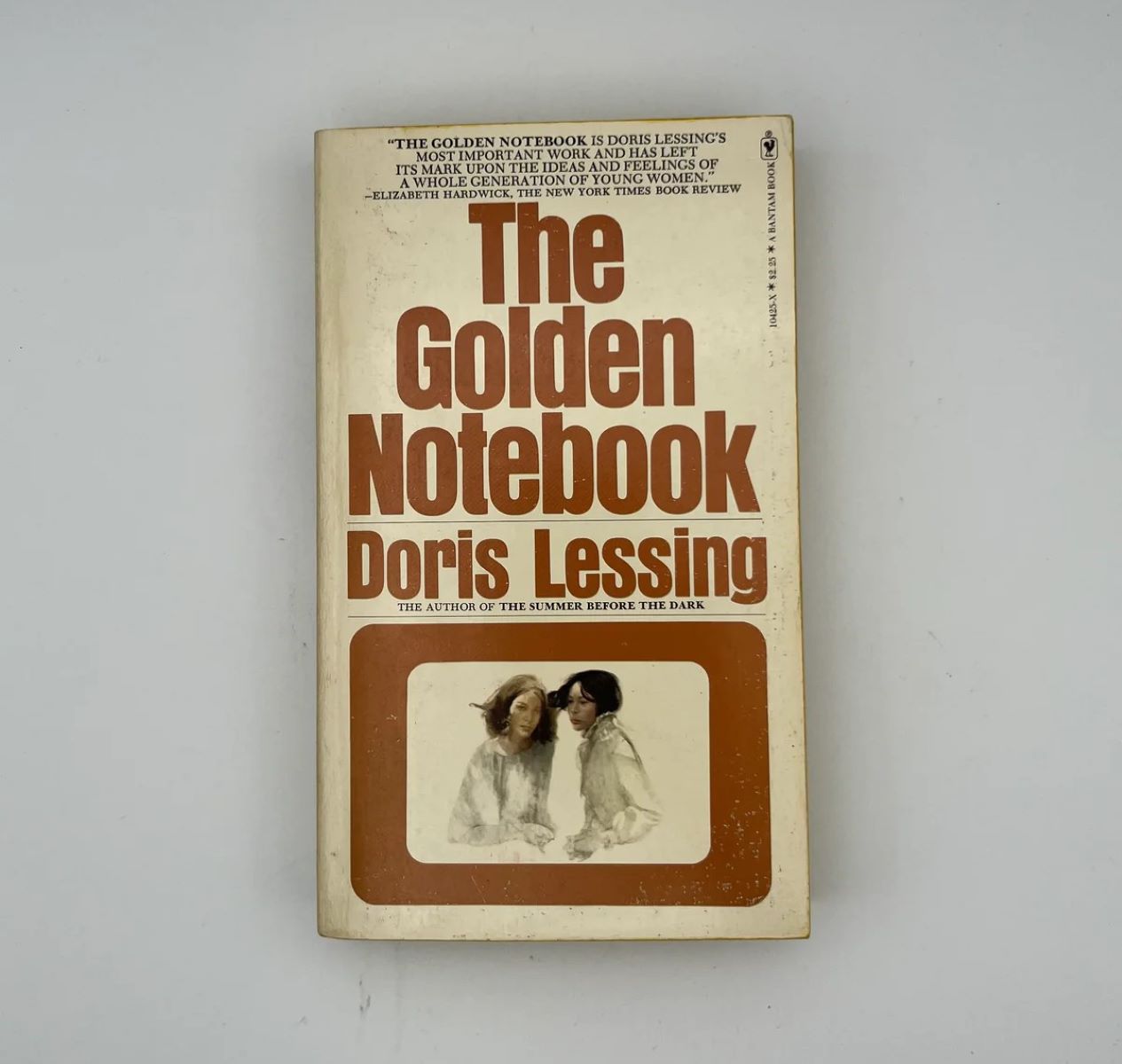
The Golden Notebook by Doris Lessing is a literary masterpiece that has captivated readers for decades. This iconic novel has had a profound impact on the literary world, pushing the boundaries of storytelling and challenging societal norms. In this article, we will explore 14 mind-blowing facts about The Golden Notebook that shed light on its significance and reveal the genius behind Doris Lessing’s writing. From its groundbreaking structure to its exploration of gender, politics, and mental health, The Golden Notebook continues to resonate with readers and remains a timeless classic. So, buckle up and get ready to delve into the fascinating world of The Golden Notebook and discover what makes it such a compelling and thought-provoking read.
Key Takeaways:
- The Golden Notebook by Doris Lessing is a groundbreaking novel that explores feminism, politics, and female identity through its innovative narrative structure, making it a must-read for anyone interested in thought-provoking literature.
- Doris Lessing’s The Golden Notebook continues to inspire readers and spark important conversations about gender, identity, and political ideologies, solidifying its place as a timeless masterpiece in literature.
The Golden Notebook was published in 1962.
The novel, written by Doris Lessing, was first published in 1962 and quickly gained recognition as a groundbreaking work in the feminist literary movement.
It is a complex and experimental novel.
Doris Lessing’s The Golden Notebook is known for its intricate narrative structure, consisting of multiple notebooks that explore different aspects of the protagonist’s life and experiences.
The novel tackles themes of gender, politics, and sexuality.
The Golden Notebook delves into the societal expectations placed on women, political ideologies of the time, and the exploration of sexual freedom and relationships.
Doris Lessing won the Nobel Prize in Literature in 2007.
Her extensive body of work, including The Golden Notebook, was recognized with the prestigious Nobel Prize in Literature in 2007.
The Golden Notebook was initially met with mixed reviews.
Upon its release, the novel received both praise and criticism due to its unconventional structure and exploration of controversial themes.
It became a cult classic and a symbol of feminist literature.
Over time, The Golden Notebook gained a dedicated following and became a landmark work within feminist literature, inspiring readers and writers alike.
Doris Lessing drew inspiration from her own life for the novel.
The author incorporated elements of her personal experiences, including her struggles as a single mother and her involvement in political activism, into the story.
The Golden Notebook explores the complexities of female identity.
Through the protagonist’s notebooks, Lessing delves into the multifaceted nature of womanhood and the challenges women face in a patriarchal society.
It is considered a seminal work in postmodern literature.
The innovative narrative structure and thematic depth of The Golden Notebook solidify its place as an important contribution to the postmodern literary canon.
The novel is an exploration of the author’s changing perspectives on communism.
Lessing, who was once a member of the Communist Party, reflects on her ideological shifts and critiques political movements in The Golden Notebook.
The book combines elements of realism and metafiction.
The Golden Notebook seamlessly weaves together realistic portrayals of everyday life with self-reflexive sections that comment on the nature of storytelling itself.
The Golden Notebook has been adapted for the stage.
In 2012, the novel was adapted into a theatrical production, bringing its thought-provoking themes and complex characters to life on stage.
It continues to be studied and analyzed in academic institutions worldwide.
The Golden Notebook’s enduring impact and literary significance have made it a staple in literature courses and academic discussions on feminist literature and postmodernism.
The novel remains relevant in today’s discussions on gender and identity.
With its exploration of feminism, political ideologies, and the complexities of female identity, The Golden Notebook continues to resonate with readers and spark important conversations.
In conclusion, Doris Lessing’s The Golden Notebook is a groundbreaking and influential novel that tackles important social and political themes through its innovative narrative structure. Its exploration of feminism, identity, and political ideologies has solidified its place as a timeless masterpiece. Whether you are a literature enthusiast, a feminist scholar, or simply a curious reader, The Golden Notebook is a must-read that will leave you pondering its profound insights long after you finish the final page.
Conclusion
The Golden Notebook by Doris Lessing is a timeless masterpiece that continues to captivate readers with its depth and complexity. Through its unique structure and thought-provoking themes, this novel challenges conventional storytelling and offers a profound exploration of identity, feminism, and political ideology. With its intricate character development and intricate narrative layers, The Golden Notebook transcends the boundaries of a traditional novel, leaving a lasting impact on its readers.
FAQs
Q: What is The Golden Notebook about?
A: The Golden Notebook follows the story of Anna Wulf, a writer struggling to find balance and meaning in her life. Through the use of four notebooks, she documents various aspects of her life, including her personal experiences, political activism, and romantic relationships.
Q: Is The Golden Notebook based on a true story?
A: No, The Golden Notebook is a work of fiction. While certain elements may be inspired by real-life experiences, the story and characters are products of Doris Lessing’s imagination.
Q: Why is The Golden Notebook considered a feminist novel?
A: The Golden Notebook is celebrated for its exploration of feminism and the struggles faced by women in society. It delves into themes of gender inequality, sexual liberation, and the challenges women face in balancing personal and professional lives.
Q: What is the significance of the four notebooks in the novel?
A: The four notebooks symbolize different aspects of Anna’s life, allowing her to compartmentalize her thoughts and experiences. Each notebook represents a different facet of her identity and enables her to explore and challenge societal norms.
Q: What makes The Golden Notebook a groundbreaking novel?
A: The Golden Notebook defies traditional narrative structures by exploring multiple perspectives and interweaving different storylines. It pushes the boundaries of storytelling and tackles complex themes that were revolutionary at the time of its publication.
Q: Are there any film adaptations of The Golden Notebook?
A: Yes, The Golden Notebook was adapted into a film in 1977. However, the film did not receive the same level of acclaim as the novel itself.
Q: Is The Golden Notebook suitable for all readers?
A: The Golden Notebook deals with mature themes and contains explicit language and content. It may not be suitable for younger or sensitive readers.
Q: Has The Golden Notebook received any awards or recognition?
A: Yes, The Golden Notebook won the prestigious Prix Médicis étranger in 1976, solidifying its place as a significant work of literature.
If you're fascinated by the intricacies of "The Golden Notebook," you'll love exploring other groundbreaking works of literature. Take a journey into the bizarre and captivating world of "The Crying of Lot 49" by Thomas Pynchon, a postmodern novel that will leave you questioning reality itself. Prepare to have your mind blown as you uncover the hidden depths of these literary masterpieces.
Was this page helpful?
Our commitment to delivering trustworthy and engaging content is at the heart of what we do. Each fact on our site is contributed by real users like you, bringing a wealth of diverse insights and information. To ensure the highest standards of accuracy and reliability, our dedicated editors meticulously review each submission. This process guarantees that the facts we share are not only fascinating but also credible. Trust in our commitment to quality and authenticity as you explore and learn with us.


